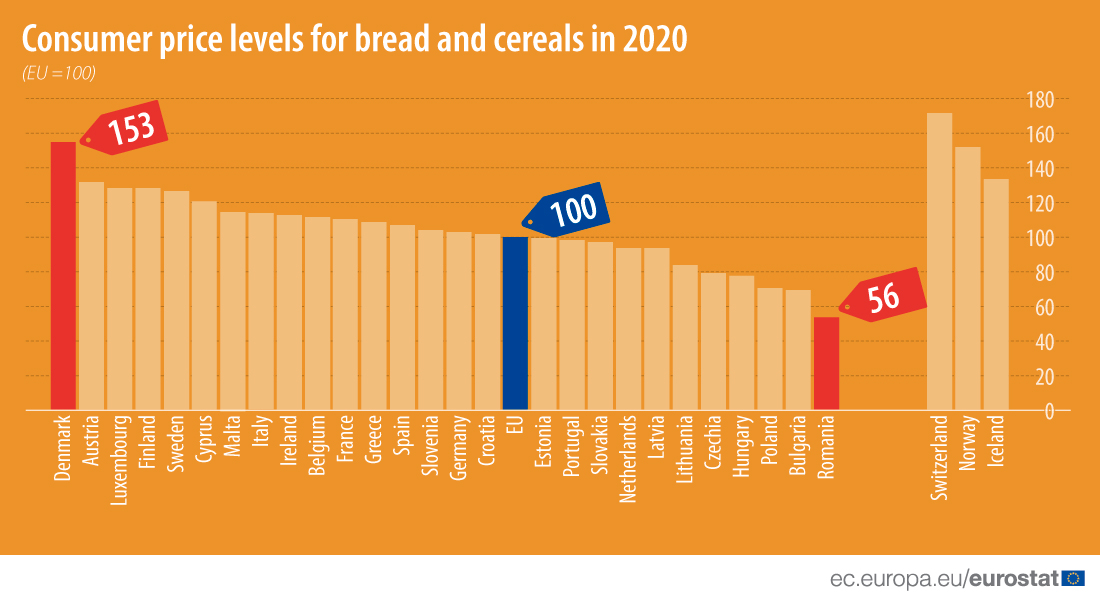The price of bread and cereals, the essential staple foods of the Maltese Islands for hundreds of years, is around 15 per cent higher than the European average, while the average wage remains only slightly higher than the EU average.
This makes bread in Malta carry the sevevnth-highest price within the EU.
Statistics released by Eurostat show that Denmark has the highest bread and cereal prices in the EU, more than 50 per cent over the average.

It’s also more than two and a half times higher than the prices found in the Members State with the cheapest bread and cereals, Romania.
Working on a food price index, with 100 being the average price across the EU, Denmark has a price level of 153, as compared to 56 for Romania.
The price level for bread and cereals for Malta in 2020 was a bit higher than the general prices for food in the country, which are 12.2 per cent higher than the EU average.
The price level index expresses the price level of a given country relative to another, by dividing the purchasing power parities by the current nominal exchange rate.
In 2020, price levels for food and non-alcoholic beverages were 29 per cent above the EU average in Denmark and 34 per cent below the average in Romania, meaning that the price for bread and cereals was higher than the national food price average in Denmark, and lower than the national food price average in Romania.
Featured Image:
Paul ta’ Kalċ
Passenger traffic between Malta and Gozo grew by nearly 8% in Q2 2025
Vehicle crossings and fast ferry usage also surged
New Malta-backed incubator to fuel Europe’s semiconductor startups
The ChipStart EU program provides a one-year, no-cost incubation opportunity for semiconductor startups in the European Economic Area
Government renews scholarship scheme for tech postgrads
In 2024 the Pathfinder Digital Scholarship issued €125,000 in funding, supporting 13 Master’s and 3 PhD students






